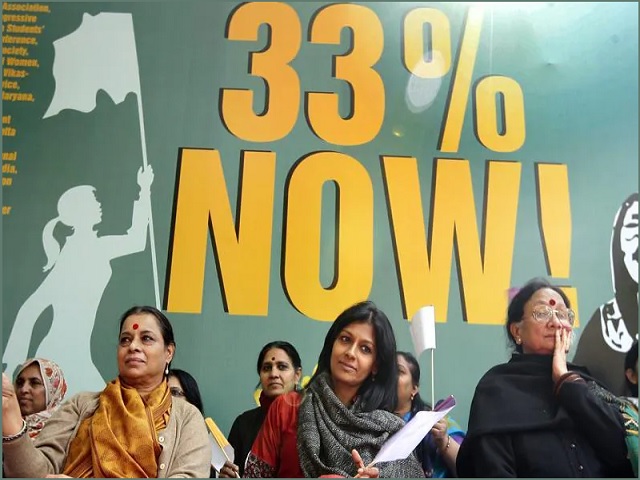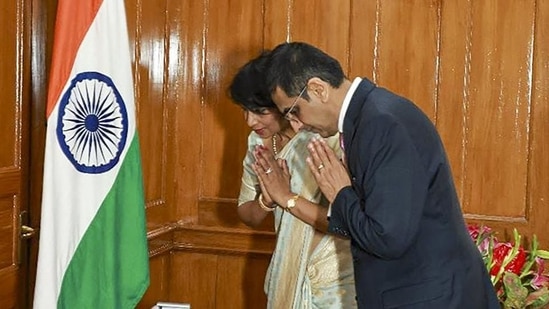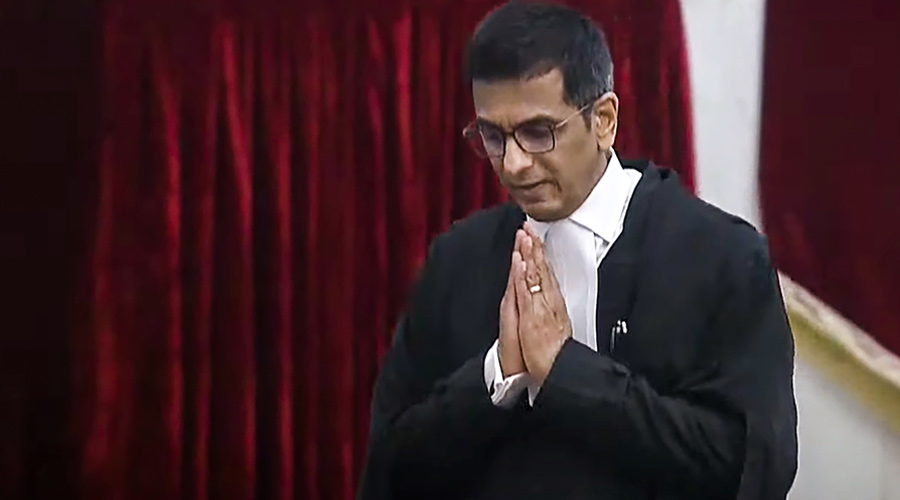We as citizens of India must be proud of the bipartisan efforts that went into passing women’s reservation bill at parliament: CJI Chandrachud

We as citizens of India must be proud of the bipartisan efforts that went into passing women’s reservation bill at parliament: CJI Chandrachud
The Chief Justice of India, D Y Chandrachud, delivered a speech during the inaugural ceremony of the Bar Council of India’s (BCI) ‘International Lawyers Conference 2023.’ In his speech, Justice Chandrachud highlighted the importance of bipartisan efforts and institutional collaboration in the context of India’s legal and constitutional framework.
He began by praising the drafting of the Constitution of India by the Constituent Assembly as a remarkable example of non-partisan engagement, emphasizing the importance of working beyond political party lines to achieve national objectives.

Justice Chandrachud also commended the recent passing of the women’s reservation bill in the Indian Parliament as another instance of bipartisan cooperation, highlighting the importance of such collaboration in the legislative process.
Regarding the judicial system, he noted that institutional collaboration is crucial when it comes to finding solutions and increasing access to justice. He acknowledged that achieving perfect solutions in the field of justice is challenging but emphasized that it is not unrealistic to aspire to a world where nations, institutions, and individuals are open to engaging with and learning from one another without fear or intimidation.

In essence, Justice Chandrachud’s remarks underscored the importance of collaboration, bipartisanship, and open dialogue in the legal and judicial spheres, both within India and on the international stage. These principles are seen as essential for the effective functioning of the legal system and for addressing the challenges of delivering justice in a diverse and complex society.
During his speech at the Bar Council of India’s ‘International Lawyers Conference 2023,’ Chief Justice of India D Y Chandrachud underscored the vital role of institutional collaboration and learning within India’s legal and judicial framework. He noted that while the Indian Constitution delineates a separation of powers among the legislative, executive, and judicial branches, it also offers room for these institutions to collaborate and share knowledge, ultimately contributing to effective justice delivery.

Justice Chandrachud stressed the significance of this collaboration in resolving complex challenges and improving access to justice, both within the legal system and on a broader scale. Rather than addressing specific issues in isolation, he advocated for the creation of a comprehensive framework to tackle these challenges and seek innovative solutions.
Moreover, the Chief Justice emphasized the importance of international engagement, highlighting that engagement between nations, institutions, and individuals provides a platform for discovering unique solutions. He acknowledged that knowledge sharing is a two-way process, with decisions of the Indian Supreme Court often cited and relied upon by foreign courts.
Justice Chandrachud also pointed out that India has played a constructive role in collaborating with other countries, such as by contributing to the construction of Supreme Court buildings in Mauritius and Bhutan. This commitment reflects India’s dedication to supporting and strengthening legal systems beyond its borders.
The presence of dignitaries, including Prime Minister Narendra Modi and legal officials from India and the United Kingdom, underscores the significance of international cooperation and dialogue in the legal field. Justice Chandrachud’s speech serves as a reminder of the judiciary’s pivotal role in fostering collaboration and innovation to address complex legal challenges and ensure access to justice.
In his address, Chief Justice of India D Y Chandrachud highlighted the importance of collaboration and unity among institutions in the pursuit of justice and the progress of the nation. He emphasized that, despite differences, there are numerous examples of institutions working together to serve the interests of justice.
He pointed out that collaboration isn’t limited to constitutional challenges but extends to everyday interactions between the courts and the government. As an example, he mentioned a current case before a constitution bench of the Supreme Court related to whether a person holding a light motor vehicle driving license can operate a commercial vehicle under the Motor Vehicles Act. Instead of treating it as an adversarial challenge, both the court and the government are collaborating to protect the livelihoods of millions of drivers across the country. This illustrates that different institutions share the same ultimate goal: the progress and prosperity of the nation.
Justice Chandrachud highlighted the approval of phase three of the e-courts project by the Union Cabinet, which has a significant financial outlay. He noted that the Supreme Court e-committee is working in cooperation with other governmental institutions. The e-courts program, implemented collectively by the e-committee, the Supreme Court of India, and the Union Ministry of Law and Justice, exemplifies how institutions collaborate to make justice more accessible, affordable, and transparent.
He also emphasized the importance of setting aside differences and coming together as individuals in the service of the nation. He cited the slogan of the recently concluded G20 summit, “Vasudhaiva Kutumbakam,” which translates to “the world is one family,” to highlight the significance of engagement and unity across nations.
Justice Chandrachud’s remarks underscore the idea that collaboration among institutions, both within a nation and on a global scale, is essential for advancing justice, promoting prosperity, and addressing common challenges. This collaborative approach can lead to innovative solutions and a more inclusive and transparent justice system.




